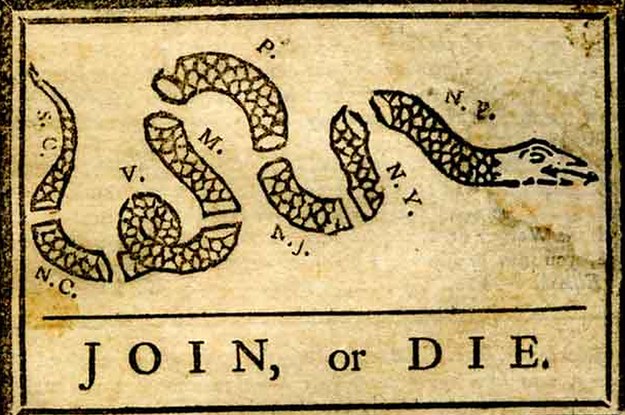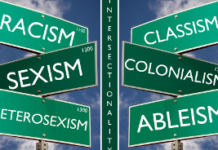This topic has come up many times in the last few years: States’ rights vs Federal law. Whether it is regarding the Electoral College method of selecting a President, or sanctuary cities or States, or Immigration law, or Obamacare, the distinction between what was intended in the Constitution vs what is happening now is a HUGE topic. As a history nut, I’ve read quite a bit on the subject, but I’m not sure it is even taught anymore. When Civics stopped being a thing, and US History became a ‘bash the US’ subject, we seem to have lost historical perspective. Let’s dig. (H/T to Wallace Garneau for the topic):
Many folks think we had the Revolutionary war (1776), then BAM, US Constitution! But reality was quite different. The war ended in 1783, the Constitution was ratified in 1789. For the six-year period in between, our fledgling young country was run by the Articles of Confederation, which was a loose agreement of the States from 1781. And run very poorly under those Articles! The Federal government under the Articles was performing mainly those tasks formerly executed by the King of England, prior to the War. Under the Articles, States could levy tariffs on each other, negotiate treaties, even coin their own currency! Needless to say, it was so bad, the States reconvened for the Constitutional Convention in 1787. During the two-year Convention, true Statesmen discussed (argued) the type of government they wanted to live under. They HATED rule by an aristocracy, whether by military or by birth. They truly wanted a government that could be run by The People, but contained controls on those governing, since people will be people, flaws and all. Similarly, they HATED pure Democracy, as the will of the majority could overwhelm the rights of the minority, or individuals.
Even back then, the arguments for a strong vs weak Federal government dominated the discussions. For a detailed view of those arguments, read the Federalist Papers—which were published in every newspaper of the day, giving both sides of nearly every potential political point. Those arguments lay sleeping, even after the Constitution was ratified, during the Presidential tenure of George Washington, but raised their disagreements in full force for the election of 1800—but that is a topic for another day.
What is important is that the Constitution WAS ratified by the 13 colonial States. How did that magic occur? Each State had its own Constitution or charter, and REALLY wanted to operate as a separate entity. They saw that too much autonomy, as granted in the Articles, was a failure. But how to protect the States’ sovereignty, while still ceding necessary roles to the Federal government (Congress)? The first several Articles of the Constitution, along with the Bill of Rights (Amendment 1 thru 10) are the answers. When you read the Constitution, you’ll realize it is NOT limits on States, or the People, but limits on what Congress can or cannot do. The Commerce Clause, for example, only allowed Congress to regulate interstate trade, foreign trade, or trade amongst the Indian tribes. It specifically had NO role to regulate (write laws about) INTRAState trade. Lacking that Clause, and the 10th Amendment (all powers not specifically enumerated in the Constitution to the Congress fall to the States or the People), the 13 colonial States would almost certainly NOT have ratified the Constitution. In addition, the colonial States were a wide variety of sizes, populations, and economies—New York was as different from South Carolina as it is now. How to prevent big States, by any measure, from overwhelming small States? Two things were paramount to the small States: The Senate and the Electoral College. The Senate was the States’ seat at the lawmaking table. With two Senators, each serving 6-year terms, for each State, regardless of size of the State, each colonial State could assure equal footing in lawmaking. And for selecting a President, the Electoral College was established: where the winner of the Presidency was the majority of the STATES carried, not the gross popular vote. Then as now, they knew that a popular vote would render small States completely irrelevant, and their concerns would have zero impact on the policies of a popularly elected President. Lacking the Senate or EC, you can almost guarantee that NH, VT, SC, RI, ME, and DE would NOT have ratified, as NY, MA, VA, and PA would overwhelm their votes. Same as it ever was: LA County now has more people in it than 43 small States! Thank goodness for the Electoral College! Unfortunately, the Commerce Clause has not fared as well historically—Congress now writes laws regulating economic and non-economic activity, even contained within a State. And we, as a country, are worse off for that, IMHO.
Welcome!Log into your account























